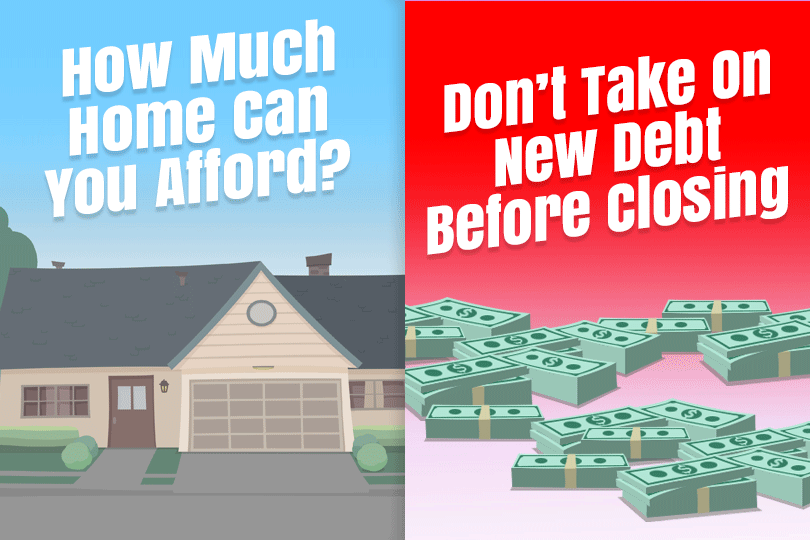What Can Hurt Your Chances at FHA Home Loan Approval

FHA Home Loan FICO Score Requirements
The FHA Lenders’ Handbook HUD 4000.1 includes a section on qualifying FICO scores. Those with scores below 500 are not eligible for an FHA mortgage loan, and applicants with credit scores above 500 but below 580 may qualify according to the Handbook, but keep in mind that borrowers in that FICO score range must put 10% down as a compensating factor.
Again, the numbers above are the FHA’s requirements. Participating FHA lenders may have additional requirements above and beyond the FHA minimums. That is one reason it’s smart to shop around for a lender and compare your options carefully.
Employment Issues
Borrowers who apply with less than two years in the job market, or shortly after a major change in the way income is earned (switching to commission from salary, for example) means your lender may have a harder time justifying loan approval.
The lender needs to see that your employment and income are likely to continue, and if you haven’t been in the job market long or you're just getting started as a small business owner, it may make sense to consider the timing of your loan application.
Do you need to wait an extra six months to make sure your employment history is longer and potentially more acceptable to the lender? It’s a good idea to consider.
NSF/Overdraft Problems, Late/Missed Payments
If you have had issues with non-sufficient funds or overdrafts and you are trying to decide when to apply for a new home loan, consider putting 12 full months between the last time you had such issues and your loan application. You want to show your lender that you have a good track record of responsible payments.
That 12-month concept isn’t limited to issues with bounced checks. You want to come to the mortgage loan application process with 12 months of on-time payments on all financial obligations for the best results.
New Debt and New Credit Applications
Adding new debt in the middle of a mortgage loan application seriously complicates the process. The same is true for adding new lines of credit. Do you know why?
Changes to your financial status after applying for your home loan may force your lender to requalify you for the home loan. If your credit or finances have changed too much your loan officer may be unable to justify the home loan after all if those changes mean you can’t afford the mortgage in light of the new debt.
------------------------------
Learn About the Path to Homeownership
Take the guesswork out of buying and owning a home. Once you know where you want to go, we'll get you there in 9 steps.
Step 1: How Much Can You Afford?
Step 2: Know Your Homebuyer Rights
Step 3: Basic Mortgage Terminology
Step 4: Shopping for a Mortgage
Step 5: Shopping for Your Home
Step 6: Making an Offer to the Seller
Step 7: Getting a Home Inspection
Step 8: Homeowner's Insurance
Step 9: What to Expect at Closing

Do you know what's on your credit report?
Learn what your score means.







